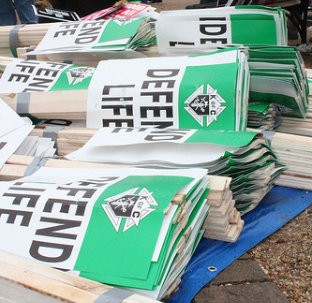Life and health
I recall three times when the churches I served were picketed. On one occasion, some neighbors were opposed to a development project in which the church was a partner. The opponents handed flyers to worshipers as they arrived and departed, describing what they claimed would be the disastrous repercussions of the proposal. The picketers wore large round badges with the image of the new building, including the church at its base, crossed out with a big red X.
The second incident cut more deeply. Some Presbyterian officials on a study trip to the Middle East met with and said positive things about representatives of Hezbollah and Hamas. This was in the midst of church proposals to divest from corporations whose business in Israel was deemed harmful to the Palestinians. Representatives of the Jewish community picketed on a Sunday morning to express unhappiness with the Presbyterian Church (U.S.A.). Fortunately, the church had a strong relationship with a local synagogue and with major Jewish organizations. In a way, the Sunday morning picketers underscored the importance of the relationship and actually spurred more meaningful dialogue and shared mission activity with our Jewish neighbors.
The third incident, and by far the most traumatic, had to do with abortion. For some time the church I served in Ohio had been providing start-up office space for a religion-based organization that advocated for reproductive choice. After an intense discussion, the church Session had allowed the use of the space. An influential voice on the Session, I recall, was that of a distinguished, generally conservative woman who said firmly that a woman's body was her own business and responsibility.





